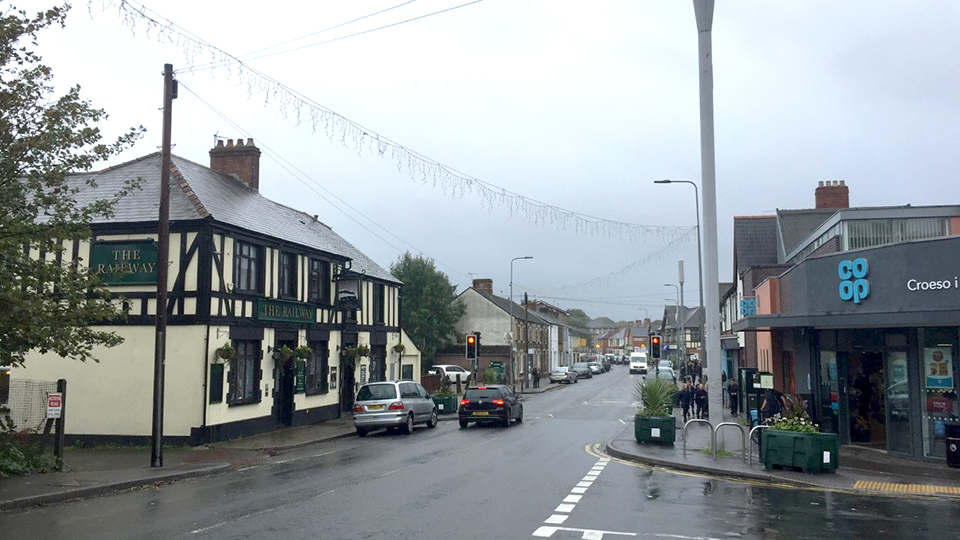Figures also reveal that anti-social behaviour is on the decline
LLANDAFF North has seen its lowest crime rate in three years, according to new data.
Figures from South Wales Police reveal that December 2021 had the lowest crime rate in the ward for nearly three years, with just 46 crimes reported.
For comparison, February 2021, which had the highest levels, saw 111 crimes reported by police.
This was despite Wales being in a national lockdown until May 2021, when restrictions began to ease.
The last time figures were as low as they were in December was in January 2019, when 53 crimes were reported in Llandaff North.
South Wales Police said: “We are committed to targeting anti-social behaviour, violence and sexual offences. Areas across the force including Llandaff North are policed by response officers, detectives, a Neighbourhood Policing Team as well as a range of more specialist policing roles.
“Neighbourhood Policing is at the heart of our approach to keeping South Wales safe. The Llandaff North team is made up of officers and PCSOs based in this area who are both visible and accessible.
“South Wales Police will continue to do everything possible to keep communities safe and to ensure that people feel safe when going about their everyday business.”
They said there may not be a reason why crime rates peaked in February and hit a record-low in December.
Meanwhile, residents are not convinced that the decreases reflect a genuine fall in crime in the area.
Steph Wilkins, 52, of Ty Mawr Road, said: “Are people reporting crime as much? Has it moved to a different area? Is it due to Covid?
“I think it would be useful to have a bit of a deep dive and some narrative from the police and look into the reasons why.
“We’ve not had a PACT (Police and Communities Together) meeting for over a year – I’d like to see them reinstated as soon as possible, and it would be great if our local councillors could facilitate that.”
Looking at the year as a whole, anti-social behaviour was the most reported crime in Llandaff North, but in the second half of the year, violent and sexual offences were more commonly reported.
South Wales Police define anti-social behaviour as “behaviour by a person which causes, or is likely to cause, harassment, alarm or distress to persons not of the same household as the person”.
It can include rowdy behaviour, littering, trespassing, misuse of fireworks, and other similar offences.
The data does show that the rate of these acts that are disclosed is on the decline. While 68 cases of anti-social behaviour were reported in January 2021, this number has fallen gradually to just six cases last month.
While the prevalence of anti-social behaviour is falling in Llandaff North, the figures indicate a jump in the proportion of violent crimes.
At the start of 2021, 71% of crimes (22 out of 96 cases) reported were anti-social behaviour, but by the end of the year, this number fell to just 13% (6 out of 46 cases).
Meanwhile, in January 2021, just 9% of crimes (9 out of 96 cases) reported were violent and sexual offences, but this number grew to 43% (20 out of 46 cases) in December 2021.
This may explain why some residents feel crime like is getting worse in Llandaff North.
Debbie-Anne James, 48, of Caldy Road, complained that her child was physically abused at a local school on a daily basis. She suggested the blame may lay with teenagers in the area.
“It’s the 12- to 15-year-olds that are not being controlled by their parents, left out on the streets to do as they please with no respect for the police,” she said.
“Because of cutbacks in the force, groups of children and young adults don’t get punished appropriately, and therefore I think a lot of residents feel they are not being taken seriously enough. We just need more patrols.”
The South Wales Police workforce increased in size by 5% from March 2020 to March 2021, but there is not data on its size around Llandaff North.
Councillor Jennifer Burke-Davies said: “We work closely with community groups, local police and PCSOs and other elected members to respond to concerns and issues when they arrive and hopefully to proactively create an inclusive community.”



